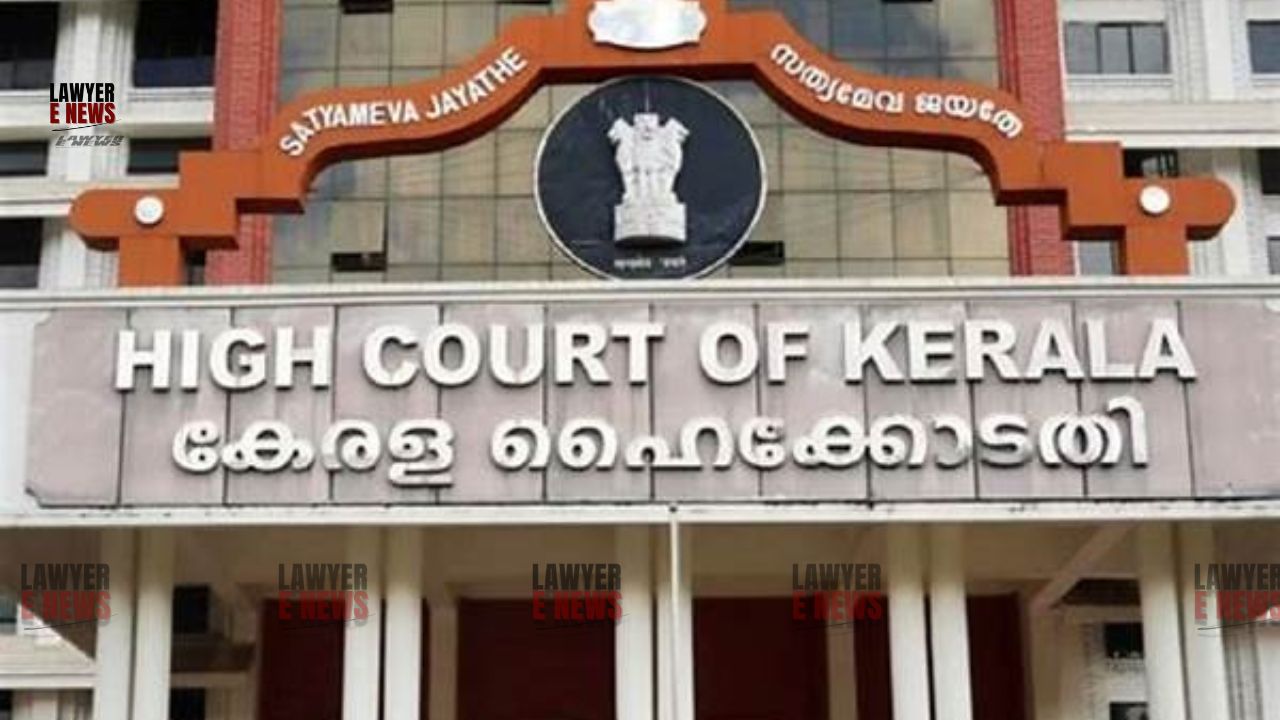-
by Admin
15 February 2026 5:35 AM



Kerala High Court allowed the petitioner’s plea for bail under Section 483 of the Bharatiya Nagarik Suraksha Sanhita (BNSS). Dr. Boby Chemmanur, a prominent businessman, was accused of sexual harassment, body shaming, and publishing sexually colored remarks under Sections 75(1)(i) and 75(1)(iv) of the Bharatiya Nyaya Sanhita (BNS) and Section 67 of the Information Technology Act, 2000 (IT Act).
The Court acknowledged the seriousness of the allegations but held that continued detention was unwarranted, given the maximum punishment for the alleged offenses is three years and the principle of "bail is the rule, jail is the exception" applies.
The case stems from an incident on August 7, 2024, at the inauguration of a Chemmannur International Jewellers showroom in Kannur, Kerala. The de facto complainant alleged that during the public event, the petitioner sexually harassed her by adorning her with a necklace without her consent, holding her hand, and making her turn around, allegedly with sexual intent. The petitioner also allegedly made sexually colored remarks during the event.
Subsequently, the petitioner is accused of making derogatory comments about the complainant on social media platforms, further amounting to sexual harassment and body shaming. The complainant lodged a First Information Report (FIR), leading to the petitioner’s arrest on January 8, 2025.
Whether the allegations, as stated in the FIR, prima facie attract offenses under Section 75(1)(i) and Section 75(1)(iv) of BNS, and Section 67 of the IT Act.
Whether the petitioner’s continued detention is necessary, considering the maximum punishment for the alleged offenses is three years, and the established principle that "bail is the rule, jail is the exception."
The Court also had to consider whether granting bail to a prominent personality like the petitioner might send a wrong societal message, as argued by the prosecution.
Prima Facie Evidence of Offenses under BNS and IT Act
Justice P.V. Kunhikrishnan observed that the allegations in the FIR, when viewed in totality, prima facie make out a case under Section 75(1)(i) (sexual harassment) and Section 75(1)(iv) (making sexually colored remarks) of BNS, as well as Section 67 of the IT Act (publication of obscene material in electronic form). The Court remarked:
“Any Malayalee who reads the First Information Statement can easily understand that the words used by the petitioner are with double meanings.”
The Court rejected the petitioner’s argument that the allegations did not amount to an offense, holding that prima facie, the accusations warranted further investigation.
Body Shaming Strongly Criticized
The Court strongly disapproved of body shaming, noting its harmful societal impact. Justice Kunhikrishnan stated:
“Comments about the body of a person as too fat, too skinny, too short, too tall, too dark, too black, etc., should be avoided. Everybody should be vigilant while making comments about others, whether they are men or women.”
However, the Court held that while the petitioner’s conduct warranted criticism, detention was not justified as stringent bail conditions could safeguard societal and legal interests.
"Bail is the Rule, Jail is the Exception"
The Court reiterated the principle laid down in Arnesh Kumar v. State of Bihar [(2014) 8 SCC 273], Chidambaram P. v. Directorate of Enforcement [2019 (16) SCALE 870], and other precedents, emphasizing that in cases where the maximum punishment is less than seven years, bail should ordinarily be granted unless exceptional circumstances exist.
The Court stated: “Bail is not to be withheld as a punishment. The principle that bail is a rule and refusal is an exception is, at times, followed in breach. It is high time that the trial courts and High Courts should recognize this principle.”
Given that the maximum punishment for the offenses under BNS and the IT Act is three years, the Court held that detention was unnecessary.
The prosecution opposed bail, arguing that granting bail to a prominent figure like the petitioner might send a wrong message to society. However, the Court held that societal concerns must be balanced with the petitioner’s rights under Article 21 of the Constitution.
The Court emphasized: “The duty of the courts is to consider the case for grant of bail in accordance with the law. If the courts start denying bail in deserving cases, it will be a violation of the rights guaranteed under Article 21 of our Constitution.”
The Court granted bail subject to stringent conditions to prevent misuse of liberty and ensure a fair trial.
The Kerala High Court granted bail to Dr. Boby Chemmanur, balancing his right to liberty with societal concerns and the interests of justice. The Court held that while the allegations warranted serious investigation, prolonged detention was unnecessary, given the maximum punishment is three years.
Date of Decision: January 14, 2025
